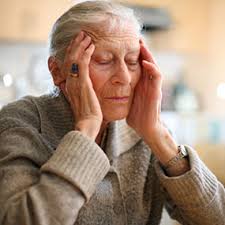Senate Committee publication on dementia
The Senate has published their report on Dementia this past week with 29 recommendations. Dr. Marie-France Rivard had presented to this committee on behalf of the CAGP, Bonnie Schroeder had done so on behalf of CCSMH, and Dr. Frank Molnar spoke on behalf of CGS, along with several other respected speakers. There is also a link to an executive summary of the report and an information pamphlet on dementia and its impact. Thanks to all the participants for their contribution.
The Senate are putting together a short video about this initiative which I have participated in which will be available soon. Please see the report here: https://www.parl.gc.ca/content/sen/committee/421/SOCI/Reports/SOCI_6thReport_DementiaInCanada-WEB_e.pdf
Also interesting relative document:
It is anticipated that these initiatives will lead to a better quality of life for Canadians living with dementia. Please distribute this information widely to gain traction and increase its impact. Thank you.
Best regards, Kiran Rabheru MD, CCFP, FRCP, DABPN
Better Together: Age-Friendly Nanaimo
Social isolation is a significant problem for many Canadian seniors. Its negative impact on physical health and mental wellbeing is well known and solutions need to be aimed at local, community and population levels. “Seniors Connect”, www.nanaimoseniorsconnect.ca, a three year project funded in part by the Government of Canada’s New Horizons for Seniors Program, is mandated to reduce social isolation among Nanaimo seniors at the population level. As one of five collaborating partner projects, the Better Together: Age-Friendly Nanaimo initiative is raising public awareness and providing education for community groups with an interest in improving social inclusion for seniors. Better Together also supports change through Action Groups whose purpose is to develop strategies to reduce barriers to social inclusion. Specific barriers, determined by focus groups of local seniors, include issues such as ageism, transportation challenges and low income. The Action Groups originated at an Ideas Exchange full day event last November that brought together seniors’ groups, representatives from local government, leaders in business and non-profit sectors, health care professionals, students and communities of faith. For more information about this exciting participatory research project, please contact Dr. Penny MacCourt at 250-760-0301.
Submitted by Steering Committee Member Lori Amdam RN, MSN
Open-Ended Working Group Side Event on Ageism and Human Rights
In December 2016, Dr. Kiran Rabheru presented on the topic of Ageism and the Rights of the Older Person to the United Nations.
The presentation is available for viewing at:
https://webtv.un.org/meetingsevents/watch/open-ended-working-group-on-ageing-sideevent/5249565367001
New resources available on the CCSMH Website
The CCSHM website now features resources on delirium prevention and care in older adults, depression in older adults, mental health in long-term care and suicide prevention. These resources are available in English, Punjabi, Simplified Chinese and Traditional Chinese.
Resources can be found at: https://ccsmh.ca/booklet/
Late Life Suicide Prevention Toolkit: Life Saving Tools for Health Care Providers
The CCSMH Late Life Suicide Prevention Toolkit: Life Saving Tools for Health Care Providers was developed for health care providers – physicians, nurses, front-line workers, mental health professionals – and educators in health education programs at universities and colleges. The toolkit was developed by experts in the fields of geriatrics and suicide prevention: clinicians, researchers and academics, community agencies/organizations, and family and advocacy groups. Production of this toolkit was made possible through a financial contribution from the Public Health Agency of Canada, the Betty Havens Award for Knowledge Translation in Aging (CIHR), as well as a donation from the RBC Foundation.
All elements of the Toolkit can be accessed on the CCSMH website.
Interested in hard copies? Please email [email protected] for more information.
More GREAT info packed into this newsletter.



